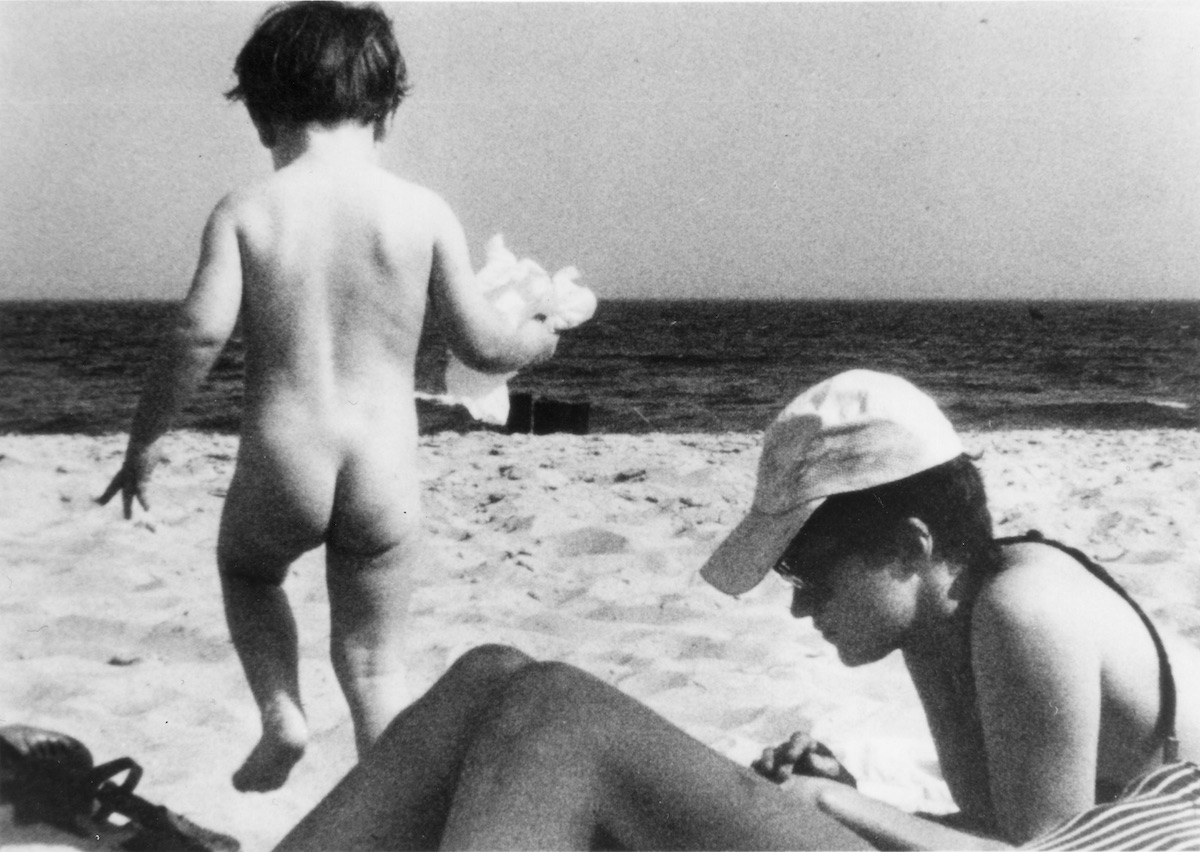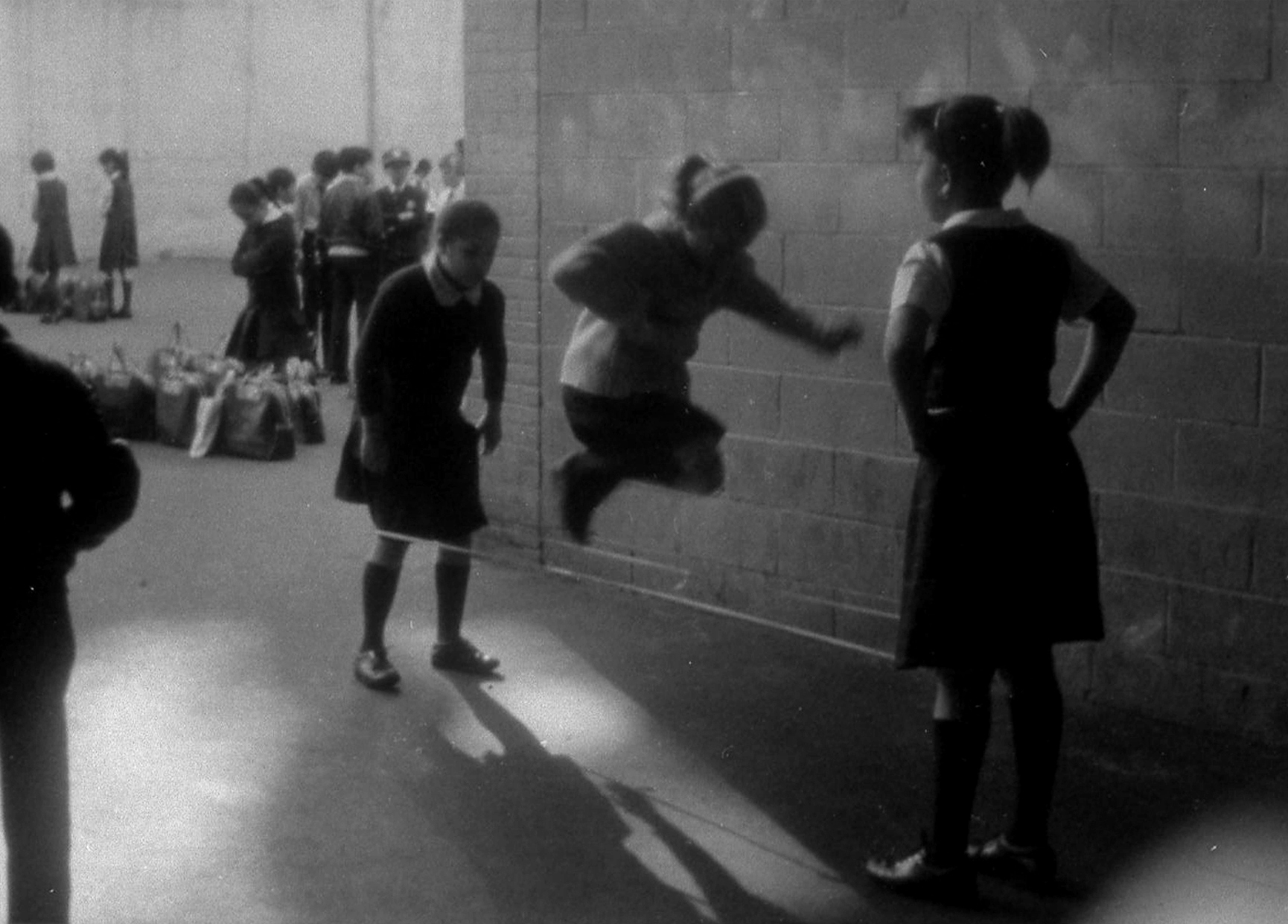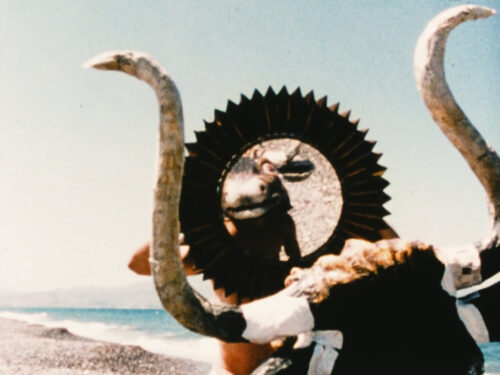A masterpiece of personal and structural documentary, Sink or Swim (1990) stands out even among Friedrich’s rich catalogue. To celebrate the film’s 30th anniversary, the hosts of Reel Rap penned tributes to this groundbreaking work of autobiographical filmmaking
The Language of Poetry and the Language of Science in Su Friedrich’s Sink or Swim (By Bennett Glace)
“It felt as if the act of writing it down would make it really come true, so she used a pencil instead of her favorite cartridge pen.”
Bridging the gap between the structural and diaristic documentary modes, Su Friedrich’s masterful Sink or Swim combines research of both the academic and emotional variety. It’s among cinema’s best expressions of what Cleanth Brooks called “the language of the poet” and an especially interesting companion to Hollis Frampton’s similarly composed film Zorn’s Lemma (1970). Rewatching Sink or Swim for the first time since encountering both filmmakers in college, those similarities seemed at once more superficial and more substantive. They reminded me why I adore Friedrich’s work while merely respecting his.
While no less precise in its construction than Zorn’s Lemma, Sink or Swim is so achingly personal, so impossibly emotional, that one almost wants to read imperfections into it. That’s because — like so many of Friedrich’s films — it wades through the most fraught waters imaginable: sexuality, familial relationships, personal trauma, the subconscious, faith, and the ongoing effort to express oneself honestly and effectively. Each concept is ever-evolving within the film. Powered by memory, experience, and emotion, Friedrich builds a constant ebb and flow throughout Sink or Swim’s narrative, eroding and uncovering new perceptions with each chapter. That ebb and flow provides a unique language for Friedrich to understand and articulate her changing perspective as clearly as she possibly can at each given stage of her life in the film.
Related: Su Friedrich: The Split Tooth Interview

By Cleanth Brooks’ definition, Frampton is a scientist and Friedrich is a poet — or perhaps an incomparable combination of the two. Frampton starts at A and ends with Z in the longest, most famous section of Zorn’s Lemma. He’s a schoolmaster and his film is effectively pedagogical. It teaches us to read a new kind of film and interpret a new kind of cinematic language. Friedrich reverses things, and her journey — backward through the alphabet and forward through an allegorized version of her memory — reminds us with each new chapter title how misleading any appearance of order really is. She’s surely enabling the viewer to learn, but (more importantly) she’s learning, un-learning, re-learning too; She’s using 1987’s vantage (she spent three years on the film) to make connections and draw conclusions she never could have as her younger alter-ego, The Girl (the voice of Jessica Lynn). Friedrich shows how whatever appeared ordered during childhood may in fact turn out to have been chaos from the adult’s viewpoint, insignificant exchanges may suddenly reveal themselves to have been formative, and so on.
To watch Sink or Swim is to witness not just a recollection, but a series of personal and artistic reckonings. If Frampton seeks to place memory, experience, and various types of cinematic expression within a rigid formal structure, Friedrich seems committed to dissecting that very structure. Though she adheres to it, the film’s every frame attempts to answer for how the structure got to be that way in the first place. While many of Sink or Swim’s images elucidate the distancing metaphors and mythical references that permeate it, others add more distance and demand more questions. The blend serves Friedrich’s efforts. Though she combines (at least) two documentary forms and enables many competing impulses (emotional vs. analytical, literal vs. allegorical, poetic vs. scientific) to exist side-by-side, she never makes that coexistence look easily won. It’s akin to two semi-estranged family members realizing they’re better off exchanging letters than meeting face-to-face.
“The poet,” as Brooks writes, “does not use notation at all — as the scientist may be properly said to do so.” No, “the poet, within limits, has to make up his language as he goes.” Normally I’d update the dated, gendered language that Brooks employs. Here, it seems to suit a film that touches on Patriarchy and paternalism by way of academia. If Brooks’ implicit sexism is “of its time,” the irony of his entire approach is perhaps “of its author’s occupation.” However much he prefers the language of poetry, Brooks isn’t a poet. He’s an academic, a literary critic who can only express that preference by employing the maligned language of the scientist.
Sink or Swim captures similar realizations about The Father, a linguist, during its final chapters. To both The Girl and The Woman (still voiced by Lynn), his approach to language proves at first confounding and, eventually, enlightening in its own unintended way. In “Discovery,” Friedrich charts her family tree and The Woman describes an unsuccessful attempt to understand The Father through his publications:
“Many years later, she went to the library and looked him up in the card catalogue. She wondered what he’d been writing while deciding to get a divorce. The only book available was a collection of articles entitled Language, Context, and the Imagination. She discovered that two of the books written that year involved the study of kinship systems. In the hopes of learning something about his approach to family life, she carried the book to a nearby table.“
Written by “the scientist” for “the scientist,” it proves utterly impenetrable. What Brooks suggested was true of poetry turns out to be true of kinship systems too. In seeking precision, The Father’s strictly scientific pen only confuses things. Next, in “Competition,” The Woman describes the one book of her father’s that she managed to make it through. This one focuses on Greek goddesses and seems to mirror his life in a strange way. In it, “He speculates that there may have been an earlier goddess who embodied the qualities of both Aphrodite and Demeter.” He goes on to argue that Aphrodite and Demeter’s competing states of being — “sexual desire” and “maternal devotion” — need to be reunited. The chapter’s final line notes that the book is dedicated to his third wife. Both work and personal life, it seems, were part of the Father’s effort to make things fit within a structure that was both idealized and academically validating.
The penultimate lettered chapter, “Bigamy,” finds The Woman meeting The Father in person for the first time in years. He brings a daughter from his third marriage along, another reunion years in the making. Their conversations sound alarmingly familiar and reveal both the limits of one style of language and the potential possibilities of another:
“As they ate ham sandwiches in the yard, the woman sat quietly and listened to the conversation between her father and the young girl. No matter what they talked about, it came out sounding like a debate or a lecture . . . She wanted to join them, but felt she was in the presence of something too familiar. Just then The Father stopped the girl mid-sentence to say that her story didn’t interest him.”
The voiceover accompanies footage of Friedrich herself, drinking and smoking in the bathtub. It not only recalls an earlier story of a near-drowning at the hands of The Father (in “Loss”), but subverts the tone of that harrowing, almost hopeless chapter. “Loss” ends with The Girl and her sister shivering and choking on the bathroom floor, “Bigamy” ends with an artist resolute in the conviction that she’ll use such experiences to “invent a more interesting story.”
The film concludes with one final surprise. Though she’s so far reversed its letters, Friedrich suddenly embraces alphabetical orthodoxy only to subvert and refract it once again. A voice (Friedrich’s, this time) recites “The Alphabet Song” in a round, repeating it six times. When she sings the final refrain, “tell me what you think of me,” the writer-director-editor not only calls to mind both the personal uncertainty and repetitive educational processes of childhood, but reminds us that the experiences of learning, un-learning, and re-learning never really end.
A Sense of Memory (By Shane Pfender)
“On the way, she only stopped once to turn around and watch her father as he beat a slow and steady path away from her through the dark, orange water.”
Su Friedrich’s Sink Or Swim requires our senses to simultaneously operate in different directions. Friedrich explores how we process experience, the way it gets translated into expression and complicated into metaphor. In an autobiographical account of her relationship with her father, Friedrich gives form to the memories of her past in a way that goes beyond verbal summary or mere recollection; Sound, image, ancient myth, unsent letters, TV commercials, strangers, plants, animals, and water are arranged by Friedrich to express a relationship to events that preserves their complexity and inability to be summarized.
Friedrich’s presentation is disparate, in that the narration by the young girl does not always accord with the image. The mind of the film stretches in each scene to build a metaphor with each progression of the backwards alphabet: As viewers, we seek the connection between the image and the sound and the word corresponding to whichever letter is assigned to each chapter of the film. The connections we end up making are imperfect, or somehow not in accordance with the gestalt of the words or visual alone. The distance of many opposing sensorial impressions creates for the viewer a slower process of meaning-making.
Experiencing this film requires the simultaneous processing of incongruous sensory events. The impression, upon first watch, is one of confusion, of wanting to rewind to catch that last scene once more, and “what letter are we on again?” These impressions are not an allegory for an imperfect memory but the thoughts that get shaken out when we shed our desire for traditional understanding. Sink or Swim eschews our request that art ought to make sense, and, using a new language of disparate sense communication, invites us to attend to the process of impression-making.
Memory recall, missing something, catching up, wanting to start over: These feelings are the substance of Sink or Swim. We can’t catch it all at once. The incongruity of the form of the film, of mending distances between sound, theme, and image, is the way of understanding anything outside of us — art or lived moment. To understand ourselves, to understand our memory and our past, we must make impossible connections between what we see and what we are told, how things should be, how they truly are, and how we express them. For Friedrich, the sense of memory itself is tied up. It is better communicated through complication; through unsent letters, through books read too late, through a disharmony of what we see and what we are told. Words and image alone would risk settling things too definitively in their coherence to properly reflect. Su Friedrich’s triumph is in creating an act of historical reduction that preserves the imaginative work of recalling one’s own past in the present.

Feature image courtesy of Su Friedrich
Sink or Swim is available to purchase on DVD from Outcast Films or stream on Outcast, Amazon Prime and Kanopy
Follow us on SoundCloud, Apple Podcasts or Spotify for all Split Tooth podcasts. For past episodes of Reel Rap, visit their Soundcloud, or head to their Patreon for exclusive episodes.
(Split Tooth may earn a commission from purchases made through affiliate links on our site.)




